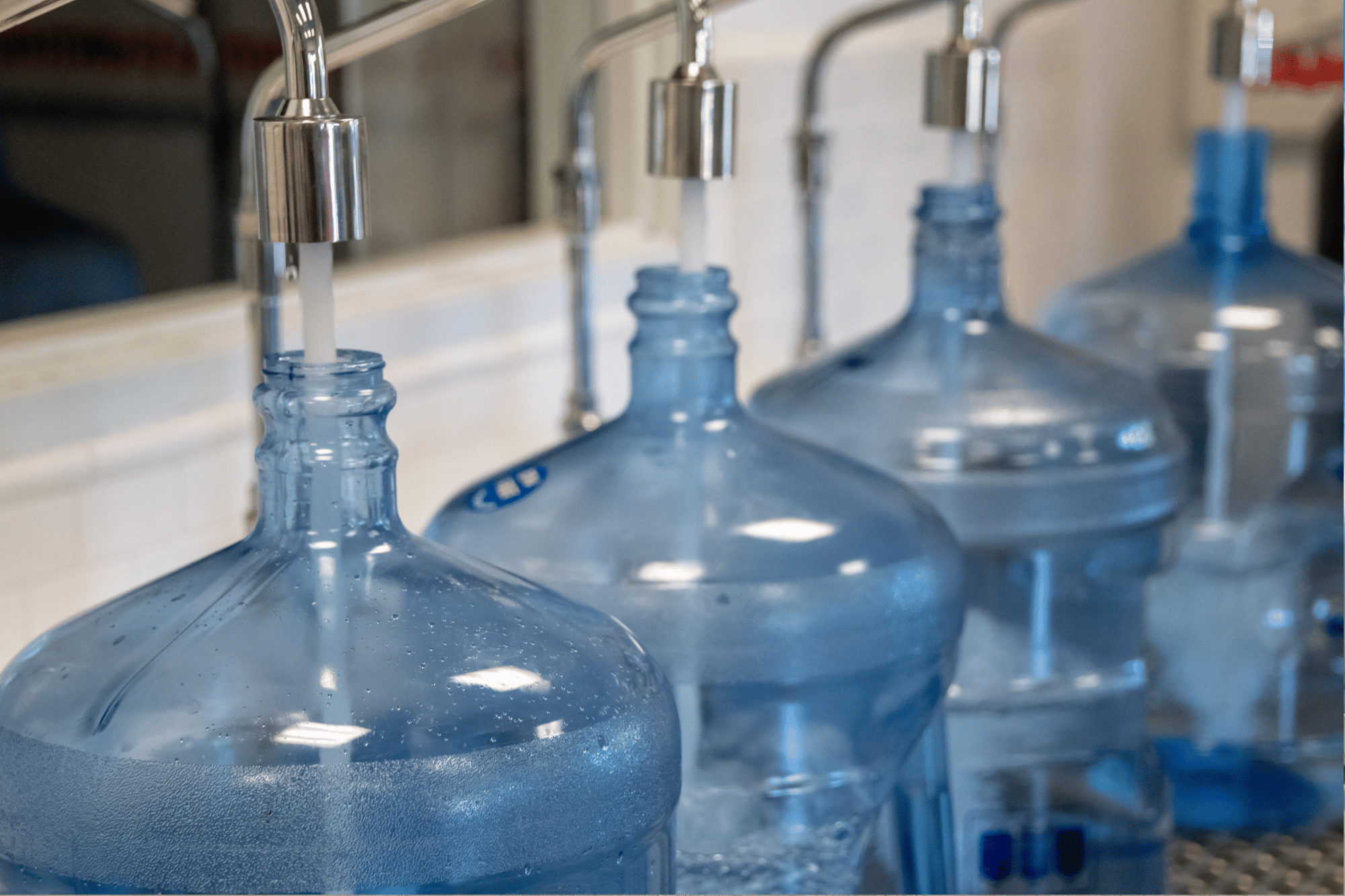Key Takeaways
- Water is a vital substance for life, and its weight can be affected by the temperature and density of water.
- A gallon of water is a unit of measurement for liquid volume, and it is equal to 3.785 liters of water.
- The weight of a gallon of water is about 8.34 pounds (or 3.78 kilograms) at room temperature (about 68°F or 20°C), but it can change slightly when the water is colder or hotter than room temperature.
- Five gallons of water weigh about 41.7 pounds (or 18.9 kilograms) at room temperature, and they can be used for various purposes, such as drinking, cooking, washing, and gardening.
- To find out how much water weighs at different temperatures, you can use a formula that involves the density and volume of water: Weight = Density x Volume
- You can also use our weight reference chart for gallons of water to easily estimate how much one gallon or five gallons of water weigh at various temperatures in Fahrenheit and Celsius.
Water is one of the most common and important substances on Earth. We use it for drinking, cooking, washing, and many other purposes. But have you ever wondered how much water weighs? How much does a gallon of water weigh? How about 5 gallons of water?
In this blog post, we will answer these questions and more. We will also explain why the weight of water can vary depending on some factors, and provide a weight reference chart for gallons of water. By the end of this post, you will have a better understanding of how much water weighs in pounds and liters.
What is a Gallon?
A gallon is a unit of measurement for liquid volume. It is used mostly in the United States, but also in some other countries like Canada and the United Kingdom. There are different types of gallons, such as the US liquid gallon, the US dry gallon, and the imperial gallon. However, in this post, we will focus on the US liquid gallon, which is the most common one.
One US liquid gallon is equal to 3.785 liters of water. That means that 5 gallons of water are equal to 18.92705 liters of water. To convert gallons to liters, you can multiply the number of gallons by 3.785. To convert liters to gallons, you can divide the number of liters by 3.785.
How Much Does a Gallon of Water Weigh?
The weight of a gallon of water depends on the temperature and density of the water. Density is a measure of how much mass (or weight) is in a given volume (or space) of a substance. Water has different densities at different temperatures, which means that it can weigh more or less depending on how hot or cold it is.
At room temperature (about 68°F or 20°C), one US liquid gallon of water weighs about 8.34 pounds (or 3.78 kilograms). That means that 5 gallons of water weigh about 41.7 pounds (or 18.9 kilograms) at room temperature.
However, if the water is colder or hotter than room temperature, it will weigh slightly less or more. For example, at freezing point (32°F or 0°C), one gallon of water weighs about 8.35 pounds (or 3.79 kilograms). At boiling point (212°F or 100°C), one gallon of water weighs about 8.03 pounds (or 3.64 kilograms).
The reason why water weighs less when it is hotter is because it expands when it is heated, which means that it takes up more space for the same amount of mass. The reason why water weighs more when it is colder is because it contracts when it is cooled, which means that it takes up less space for the same amount of mass.
To get more accurate measurements of how much water weighs at different temperatures, you can use a formula that takes into account the density and volume of water. The formula is:
Weight = Density x Volume
The density of water at different temperatures can be found in online tables or calculators, such as this one: water density specific weight.
The volume of water can be calculated by multiplying the number of gallons by 3.785 to get the number of liters.
For example, if you want to know how much 5 gallons of water weigh at 50°F (or 10°C), you can use the formula as follows:
- The density of water at 50°F is about 0.99975 grams per milliliter (or cubic centimeter).
- The volume of 5 gallons of water is about 18.92705 liters, which is equal to 18927.05 milliliters (or cubic centimeters).
- The weight of 5 gallons of water at 50°F is about:
Weight = Density x Volume
Weight = 0.99975 x 18927.05
Weight = 18920 grams
To convert grams to pounds, you can divide the number of grams by 453.59.
Weight = 18920 / 453.59
Weight = 41.7 pounds
As you can see, the weight of 5 gallons of water at 50°F is almost the same as at room temperature, because the difference in density is very small.
Weight Reference Chart for Gallons of Water
To make it easier for you to estimate how much water weighs at different temperatures, we have created a weight reference chart for gallons of water below. You can use this chart to find out how much one gallon or five gallons of water weigh at various temperatures in Fahrenheit and Celsius.
| Temperature | Density | Weight per Gallon | Weight per Five Gallons |
|---|---|---|---|
| °F | °C | g/mL | lb |
| 32 | 0 | 0.99987 | 8.35 |
| 40 | 4.4 | 0.99997 | 8.35 |
| 50 | 10 | 0.99975 | 8.34 |
| 60 | 15.6 | 0.99907 | 8.33 |
| 68 | 20 | 0.99823 | 8.34 |
| 77 | 25 | 0.99707 | 8.32 |
| 86 | 30 | 0.99567 | 8.31 |
| 95 | 35 | 0.99407 | 8.29 |
| 104 | 40 | 0.99227 | 8.27 |
| 122 | 50 | 0.98807 | 8.22 |
| 140 | 60 | 0.98324 | 8.17 |
| 158 | 70 | 0.97781 | 8.12 |
| 176 | 80 | 0,97181 | 8,06 |
Note: The values in the chart are rounded to two decimal places for simplicity.
Conclusion
We hope that this blog post has helped you learn how much water weighs in pounds and liters, and how the weight of water can vary depending on the temperature and density of water.
To summarize, here are some key points to remember:
- One US liquid gallon of water is equal to 3,785 liters of water.
- At room temperature (about 68°F or 20°C), one gallon of water weighs about 8,34 pounds (or 3,78 kilograms). That means that 5 gallons of water weigh about 41,7 pounds (or 18,9 kilograms) at room temperature.
- The weight of water can change slightly when the water is colder or hotter than room temperature, because the density of water changes with temperature.
- To get more accurate measurements of how much water weighs at different temperatures, you can use a formula that takes into account the density and volume of water: Weight = Density x Volume
- You can also use our weight reference chart for gallons of water to find out how much one gallon or five gallons of water weigh at various temperatures in Fahrenheit and Celsius.
We hope that you enjoyed reading this blog post and found it useful and informative.
If you have any questions or comments about how much water weighs, feel free to leave them below.
FAQ
Here are some frequently asked questions and answers about how much water weighs.
Q: How much does a gallon bucket of water weigh?
A: A gallon bucket of water weighs the same as a gallon of water, which is about 8,34 pounds (or 3,78 kilograms) at room temperature (about 68°F or 20°C). However, if you want to know the total weight of the bucket and the water inside it, you need to add the weight of the empty bucket to the weight of the water.
Q: How many fluid ounces are in a gallon of water?
A: One US liquid gallon of water is equal to 128 fluid ounces of water.
Q: How much does a liter of water weigh?
A: One liter of water weighs about 2,2 pounds (or 1 kilogram) at room temperature (about 68°F or 20°C).
Q: How much does a pint of water weigh?
A: One US liquid pint of water is equal to 16 fluid ounces or 0,473 liters of water.
It weighs about 1,04 pounds (or 0,47 kilograms) at room temperature (about 68°F or 20°C).
Q: How much does a cup of water weigh?
A: One US customary cup of water is equal to 8 fluid ounces or 0,236 liters of water.
It weighs about **0,
52 pounds** (or 0,24 kilograms) at room temperature (about 68°F or 20°C).
Q: How much does a tablespoon of water weigh?
A: One US tablespoon of water is equal to 0,5 fluid ounces or 0,0148 liters of water.
It weighs about 0,033 pounds (or 0,015 kilograms) at room temperature (about 68°F or 20°C).
Q: How much does a teaspoon of water weigh?
A: One US teaspoon of water is equal to 0,1667 fluid ounces or 0,0049 liters of water.
It weighs about 0,011 pounds (or 0,005 kilograms) at room temperature (about 68°F or 20°C).
Q: How much does a drop of water weigh?
A: A drop of water is not a standard unit of measurement, so its weight can vary depending on the size and shape of the drop. However, one possible way to estimate the weight of a drop of water is to use the volume of a spherical drop with a diameter of 0,05 inches (or 1,27 millimeters), which is about 0,000061 cubic inches (or 0,001 milliliters) of water. Using this volume and the density of water at room temperature (about 68°F or 20°C), which is about 0,99823 grams per milliliter (or cubic centimeter), we can calculate the weight of a drop of water as follows:
Weight = Density x Volume
Weight = 0.99823 x 0.001
Weight = 0.00099823 grams
To convert grams to pounds, we can divide the number of grams by 453.59.
Weight = 0.00099823 / 453.59
Weight = 0.0000022 pounds
Therefore, a drop of water weighs about 0.0000022 pounds (or 0.00099823 kilograms) at room temperature (about 68°F or 20°C).
Q: How much does water weigh in space?
A: In space, there is no gravity, so water does not have weight. However, water still has mass and inertia, which are measures of how much matter is in an object and how much force is needed to change its motion. The mass and inertia of water do not change in space, so they are the same as on Earth.
Q: Why does water weigh more than air?
A: Water weighs more than air because it has more density than air. Density is a measure of how much mass (or weight) is in a given volume (or space) of a substance. Water has a density of about 0.99823 grams per milliliter (or cubic centimeter) at room temperature (about 68°F or 20°C), while air has a density of about 0.001225 grams per milliliter (or cubic centimeter) at the same temperature and pressure. That means that one milliliter (or cubic centimeter) of water has about 814 times more mass (or weight) than one milliliter (or cubic centimeter) of air. Therefore, water weighs more than air.








